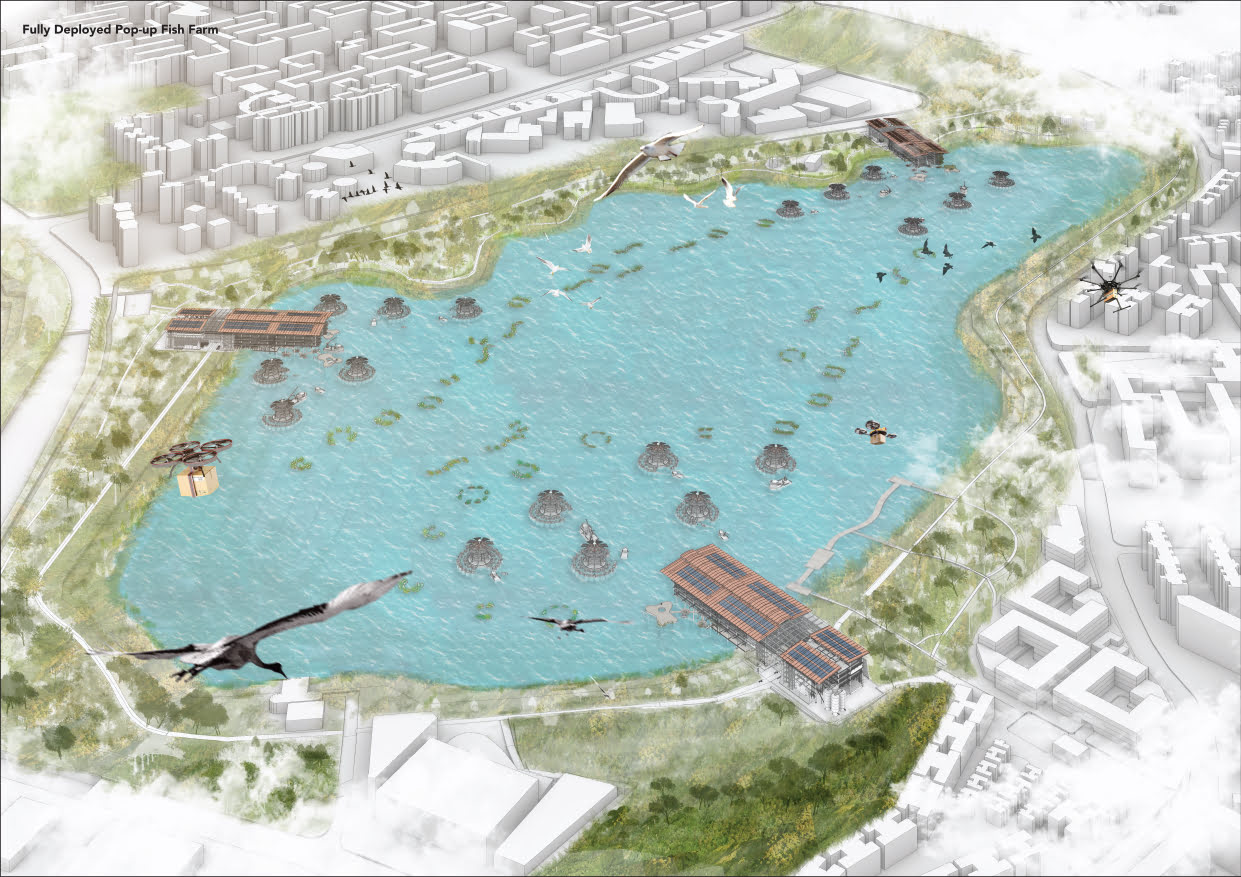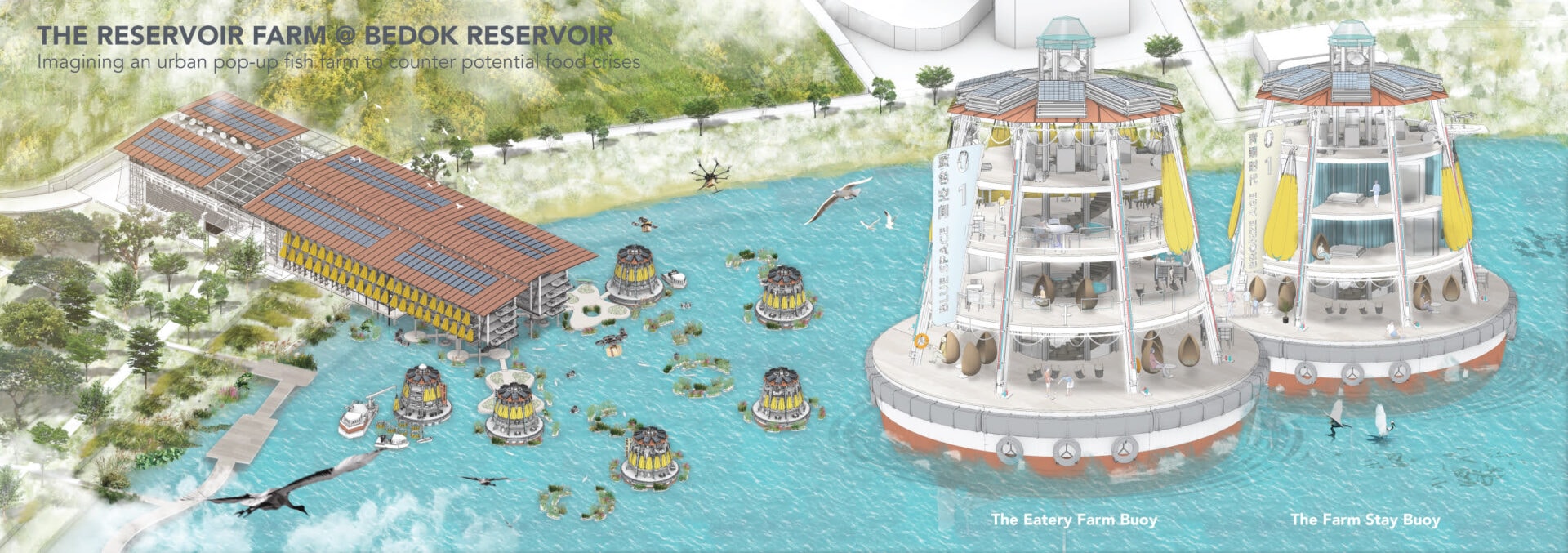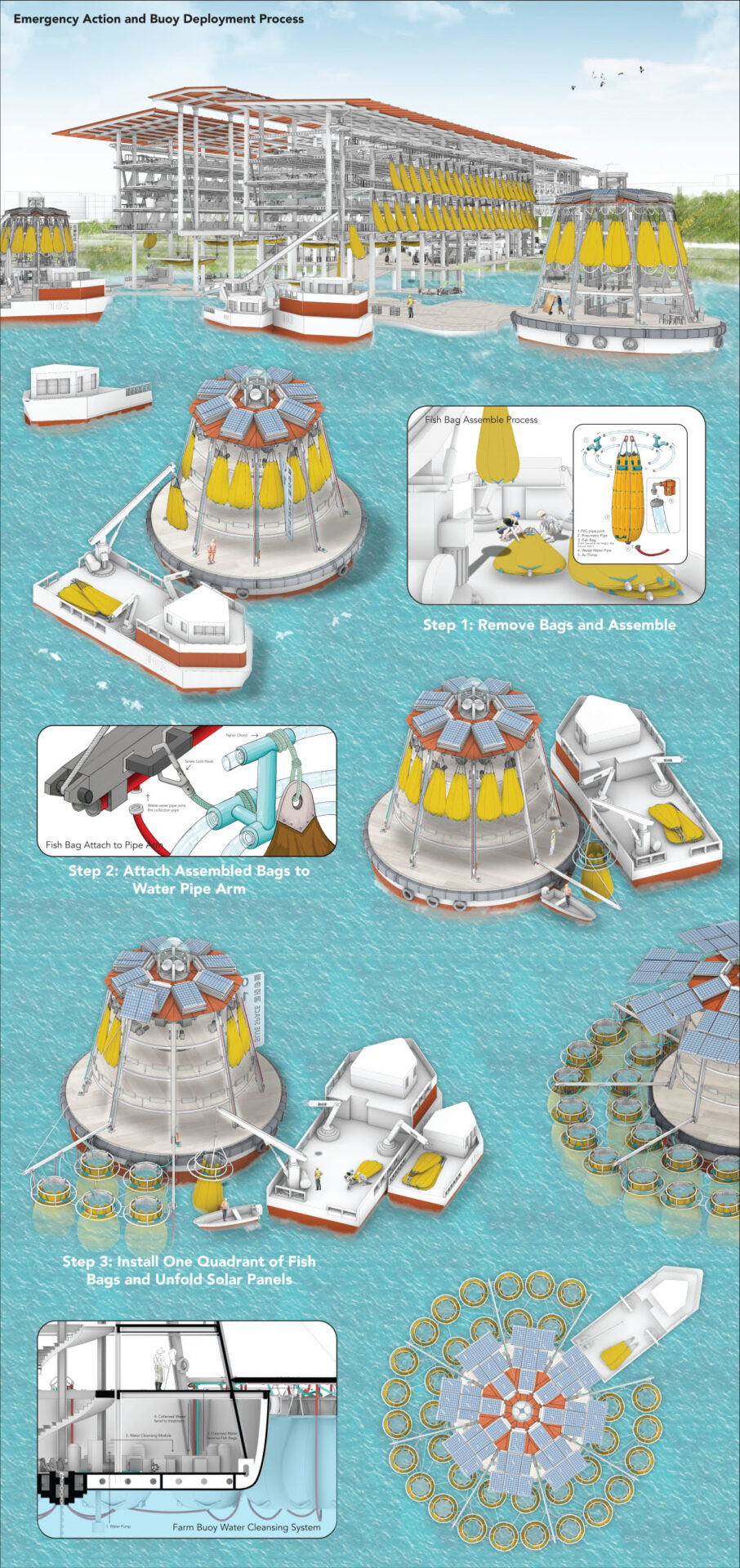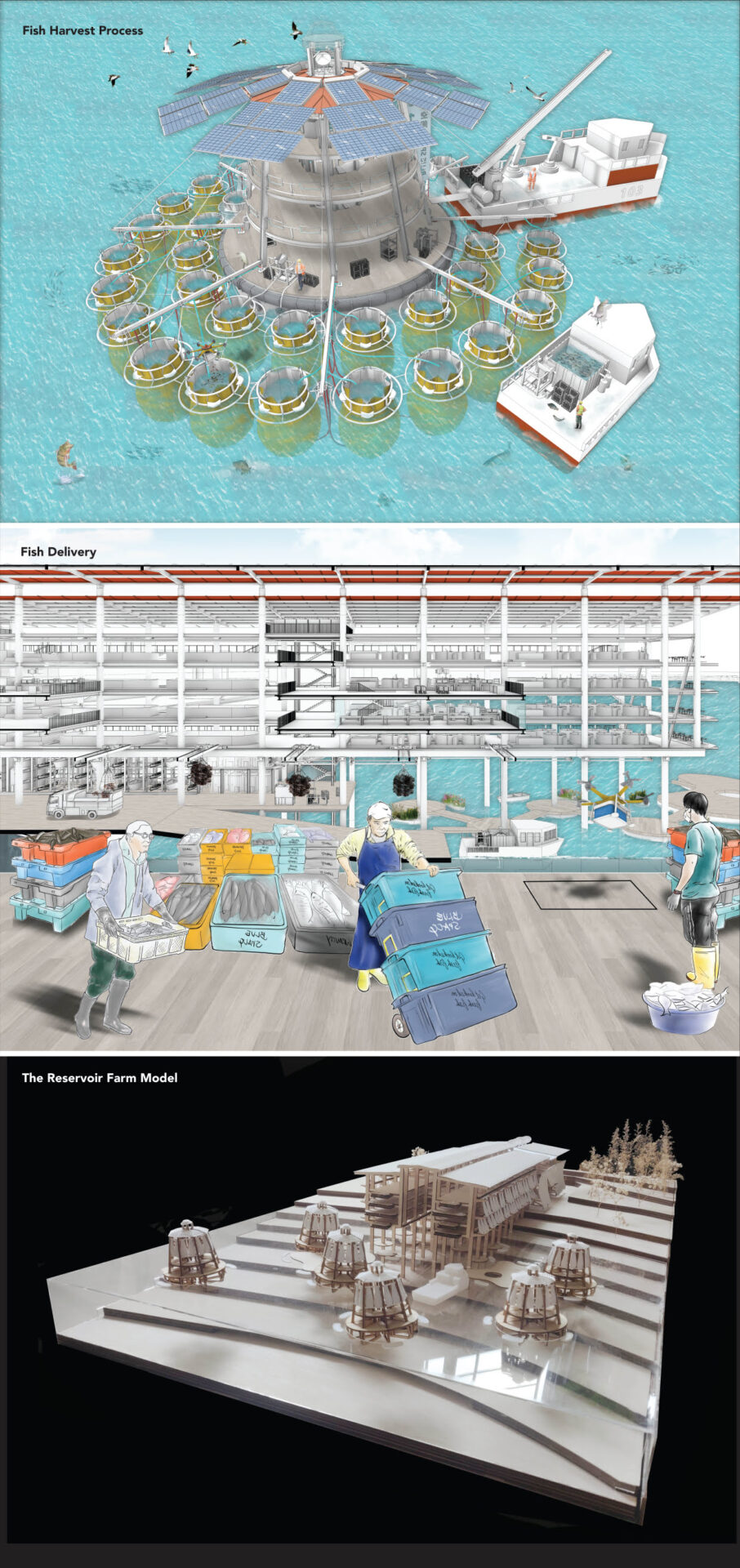Context
The thesis aims at empowering Singapore’s food security in continued contingencies caused by COVID-19 and fluctuations in food trades that we rely on for survival.
Thesis Statement
In speculation of a near future where during a severe crisis event that, Singapore, as island city that relies heavily on imports for essentials, has to rely on domestic production to feed the nation completely. The proposed architectural vision of a new food infrastructure transforms conventional use of reservoir in urban area, from a venue for recreational activities and water retention, to become a space for food fish production.
Before Crisis
The pop-up fish farm complex is strategically located in Bedok Reservoir, and comprises of two parts, with main building, the vertical fish farm, functions as food production and storage space, and floating farm buoy, specifically designed for contingency production. Both parts function concurrently as a social infrastructure constantly preparing for crisis. The architecture becomes a place maker for skill transfer and knowledge sharing, and a catalyst for communal gathering to ground us mentally in times of challenges.
During Crisis
Once a contingency situation takes place, the vertical farm will release the low headroom bags attached at the façade, to use them as the pop-up device to raise fish. The farm buoy will mobolise to allocated location, drop down arms to support water cleansing services for fish in the bags. The contingency production will operate at a scale that fulfills the protein needs for Bedok Newtown population.
Conclusion
The fully expanded building covers the entire Bedok Reservoir to form a new landscape of spectacle and a symbol of national resilience. In view of aggravating crisis around the world, self-sufficiency becomes an issue that requires immediate actions. This thesis imagines shared responsibility of production among state, enterprises and communities, and it best pictures my understanding of antifragile food system, that will give us more hope to survive and develop in a future full of uncertainties.








Supervisor's comments:
Reservoirs and waterways are part of Singapore’s blue landscape of survival. Adding on another layer of subsistence agenda over the reservoir, the thesis proposes intensive fish farming infrastructure with the contingency to meet complete fish consumption needs of the nation during crisis. Catherine Steel describes food as the substance that connects us to one another and the sharing of food will always be central to bonding with others. This notion takes the thesis beyond instrumental objectives, drives the thesis to also examinesthe synergy of community and agricultural land use and the meaning of productive landscape as a national or community icon for self-sufficiency.
- Assoc. Prof. Cheah Kok Ming